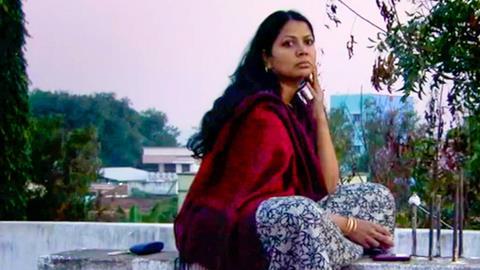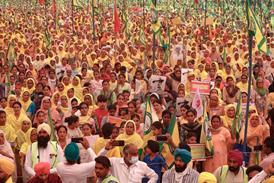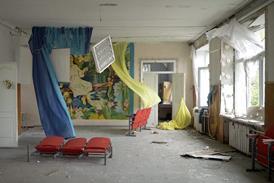Dir: Kim Longinotto. UK-India. 2013. 90mins

Salma is a story of rare achievement – a Muslim woman who writes her escape out of family servitude in southern India. The documentary, telling her own story in her own voice in her own village, is as poignant as it is simple. Given the furore over the recent Delhi rape scandal and the glaring lingering injustices of village life that the modest doc exposes, Salma will travel widely beyond the Sundance and Berlin festivals, as Longinotto’s earlier films have. Politicians could also get hold of this inspirational story before it finds other platforms in museums and in the educational market.
At every turn Longinotto uncovers evidence that past injustices still rule.
Salma, 44, the protagonist, is a distinguished poet in the Tamil language. Her biography reads like a variant on the Book of Job. Given to a young aunt as a child because her father wanted a son, she was returned to her birth parents at five, and confined at puberty according to local practice in a room with one barred window that she shared with a sister. Once she’s married off, her husband’s family keeps her inside their home, where she begins writing, locked in the foul toilet that the entire family used, with a hidden pen on paper ripped from a calendar.
After more than 20 years (combining the confinement by both families), her poems reach the outside world. A journalist publishes her photograph, and village elders are furious. It’s too late –Salma runs for local elected office and her writings find a public, but the status of women in the village has barely changed. “She’s a good girl, but she’s too clever,” says Salma’s father.
Salma remains married to the husband who beat her for trying to write. Calling this story complicated is like calling the women of Salma’s village oppressed. Speaking without anger about her sad past and the on-going practice of family quasi-enslavement – with the mother who locked her up and tricked her into marrying her husband in the room - Salma seems saintly.
In this frank portrait of women’s life, shot adequately by Longinotto herself, without crescendos or drama, the practices from the past remain current, and the locals are unrepentant for their unchanged ways. So are Salma’s nephews and sons, who are indifferent to her poetry and defend the wearing of the burka and the cinema ban.
At every turn Longinotto uncovers evidence that past injustices still rule. We visit more than one wedding where a child bride is prepared for the first night with her arranged husband. Longinotto does not need to overplay these scenes, as a young girl shivering with fear prepares to exchange one master for a new one. To paraphrase Salma, “we have so much time, but no life.” She doesn’t have to say that there are limits to what poetry can achieve.
Production companies: Women Make Movies, Channel 4, Vixen Films
International sales: Vixen Films Kimlonginotto@hotmail.com
Producer: Kim Longinotto
Executive producers: Hamish Mykura, Anna Miralis
Screenplay/Editor: Ollie Huddleston
Cinematography: Kim Longinotto
Music: Samuel Sim




















